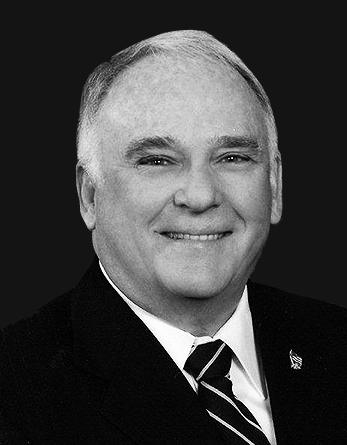
As a pastor, what is your ideal church member? Most of us, if we answer honestly, would say that we want young adults. That’s the way to grow the church, after all. But did you know that the senior adult population, the 55+ age range, is exploding at three times the national population growth? This means there’s a tremendous opportunity for ministry in this area. But how do we do this well? And how do we connect with the older members of our churches?
Common difficulties in relating to seniors
I think the main reason younger pastors have trouble relating to the older population in our churches is because they are uncomfortable around them. They simply don’t know much about them. Many younger pastors are fresh out of seminary, but if you look, you won’t find a seminary course on older adult ministry. Even in pastoral ministry programs, there aren’t specific classes on ministering to the elderly. So pastors finish seminary, go to their first church, and know nothing about senior adult ministry.
Also, many young pastors don’t see the benefits of the seniors in their churches. They see older people as resistant to change, or holding them back as a church. Or, they see that the senior adults in their churches are dying off, so they don’t sense a need to invest time and energy into that age group.
One way we combat these difficulties is through active intergenerational ministries. Senior adults have so much to offer younger generations. I am convinced of this. Psalm 145:4 says, “One generation commends your works to another; they tell of your mighty acts.” So we have to think about identifying ways to bring these groups together—the older and the younger. For example, we’ve started doing a grandparent / grand buddy program, connecting the older and younger members of our church. We also have ushers find a young man to usher with them. Having intergenerational ministries provides intentional opportunities to mix generations as they serve, but it also exposes younger members to older members and allows them to get to know each other better.
Communicating with older adults
Love and listen well: More than anything, we as pastors need to learn to love, and learn to listen. Older adults have amazing stories. In the ten years that I was pastor at Palm West Community Church, my wife and I made over ten thousand visits to care centers and hospitals, all with senior adults. And it was amazing the stories that we’d hear. I had a fellow who was a gold medal recipient from the Olympics. And many World War I and World War II stories. Amazing stories. But many people, especially pastors, are busy and don’t want to take time to listen. But if they would take a few minutes to ask about them, they could learn some amazing things.
Many pastors are busy and don’t want to take time to listen.
Be sensitive to individual needs: We also need to be sensitive to needs as they arise. In our church, we have an older lady who has Parkinson’s, and she sings in our choir. Well, she kind of sings in our choir—she stands there. But we love her, and this is important to her. She had never been baptized; she can’t really get down into the baptism waters because of the steps. So our pastor, education minister, and choir went to her house and baptized her in her swimming pool. And she was just glowing when they announced that she was going to be baptized in her pool. A simple need was met, but it meant so much to her.
Seek to understand seniors’ needs: Along these same lines, pastors must actively seek to understand the needs of the senior adults in their congregations. So often, young pastors, especially if they are right out of seminary serving at their first church, have a tendency to come in and think they’re the experts. And that’s one of the biggest mistakes they can ever make: coming into a congregation and feeling like they have all the answers. Instead, they need to listen and ask good questions.
Meeting specific needs
Basic needs: When it comes to serving our senior adults, oftentimes the most overlooked act of service is meeting basic needs. Those needs can include:
- Food and water
- Electricity
- Transportation
- Companionship
I’ve seen several of these needs in my time as a pastor. I once visited a church member who had nothing in her kitchen. I opened the refrigerator—nothing. I looked in the cabinets—nothing but a jar of peanut butter.
Ministries to meet those needs: Our church has an Angel fund for situations just like this. We can provide financially for folks to be able to buy groceries, pay rent, or pay utilities. We also have members on call to take homebound people to a doctor’s appointment, or bring a meal.
Another ministry we have in place is a Telecare ministry. As a part of this program, homebound folks will get a daily phone call. We also keep track of everybody at worship, and if someone isn’t there on Sunday morning, they get a call on Monday to make sure they are okay. This is especially important for the elderly, as falls become a big issue. They also can feel isolated, so the Telecare ministry helps meet basic needs in those areas as well.
Meeting the need for inclusion: Lastly, many senior adults simply want to feel needed and considered in the church. Even decisions like designing a new building or sanctuary should take them into consideration. For instance, when we planted a church recently, we considered whether the floor should be flat or sloped, and part of the consideration was accessibility for the elderly. Even the cushions for the chairs took our senior adults into consideration.
Meaningful opportunities to serve: One way this plays out is having meaningful opportunities for all ages to serve. The elderly in our church have participated in filling Christmas stockings, making prayer shawls, and other quiet ministries. Ministries that contribute to the well-being of someone else, but are meaningful. Paired with this, it matters how the pastor and leadership team speak about serving. Is it a chore to serve, or is it a privilege to serve? The church leadership can greatly influence how well each generation serves in the church.
I’ve also found that many senior adults are ready and willing to serve, if there is a place for them. Be intentional about creating opportunities for service; draw on their willingness to be an active part of the church. As you seek to meet the needs of your older congregants, you can get them involved in meeting other needs as well.
Dealing with change
Difficulty of change: Change is oftentimes one of those areas that we approach hesitantly, especially with senior adults. Additionally, change is an area where we tend to encounter resistance from our older church members. As a personal example, as a part of a new ministry, we recently had the “pews versus chairs” debate. Don’t we all seem to have those at one time or another? Well, we have these long old, old pews that one pastor wants to replace with chairs. And some of our senior ladies were fuming because they didn’t want to lose their pews. One woman said, “What if I try to stand up and I fall? I don’t have anything to hold on to.” Here was a need, a place for change, but it was met with resistance.
Despite that resistance, change is possible, and at times even inevitable. But it doesn’t always have to be difficult.
How to work through change: Here’s my five-step solution to working through change:
- Be sure the change meets a need. If it doesn’t, it will be met with resistance.
- Be sure folks understand why the change is needed. People are more open to change when they understand the need first.
- Be sure those involved understand the consequences. How will this change impact others?
- Make sure they believe it can actually happen, that it can actually be accomplished.
- Make sure they believe the change is better. It’s easy to say “I like it better the old way.”
The change has to meet a need, or it will be met with resistance.
I’ve learned that people commit to the decisions they help make, especially the older generation. Get them involved in the decision-making process, demonstrate the value, and commit to working with them rather than against them.
Conclusion
As pastors, we have to get our senior adults involved, but oftentimes we need encouragement and instruction on how to do that. I encourage you to first seek to meet the needs of your older church members, but then draw on their willingness to serve, which is consistent with God’s vision of intergenerational ministry (Ps. 145:4). There are many senior adults ready to tell of the mighty acts of the Lord; they are an untapped resource standing by to serve. We must care for them well, listen to them well, and involve them in the church well; otherwise we risk losing a valuable resource for ministry.


